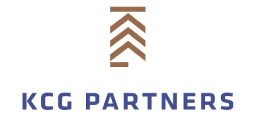The Hungarian Government has made a significant amendment just weeks into 2025 by increasing the VAT exemption threshold for small and medium-sized enterprises (SMEs). Despite the autumn tax package for 2025 remaining silent on this matter, the new limit has been set at HUF 18 million, up from the longstanding HUF 12 million. This increase applies retroactively from 1 January 2025. Taxpayers have until the end of February to opt in for the exemption.
Updates on Eligible Countries for Guest Workers in Hungary
Hungary introduced new regulations for employing guest workers from third countries. These updates specify eligible countries and permit requirements to align with Hungary’s labour market needs and compliance standards.
Significant Changes to Court Fees and Attorneys' Fees in Court Proceedings
The Hungarian Act on Fees and Duties will be changed significantly as of 28 January 2025, which will also affect the fees for court proceedings.
Mandatory Liability Insurance for Construction Contractors Effective 15 January 2025
Based on the contents of the government decree on construction works in effect since 1 October 2024, all domestic construction or design firms and self-employed persons must have compulsory contractors' liability insurance starting from 15 January 2025.
Good News for Startups and Investors: The IP Contribution is Tax-Free
On 1 January 2025, inter alia, an amendment to the Personal Income Tax Act relating to intellectual property (IP) contribution entered into force.
Increasing Tax Burden on Energy in Hungary
As part of the fall tax package, the Hungarian Government proposed an automatic, inflation-tracking increase of tax on, inter alia, energy products as of 2025. The actual increase from 1 January 2025, however, significantly exceeds the current (and expected) inflation levels. This might concurrently lead to increased inflation again.
Changes in the Local Taxes from 1 January 2025
Based on the 2017 Central Budget Act, the financial system of the local governments was supplemented by a new source: the solidarity contribution, which is paid to the central budget by a proportion of municipalities with a high per capita tax burden and is aimed at improving equal opportunities.
Mandatory Land Exchange for New Solar Power Plant Investments
The new Hungarian Architecture Act stipulates that areas designated as green zones, agricultural zones or forest zones cannot be selected as new development zones or special non-development zones.
Significant Changes to the Taxation of Vehicles
By passing the proposed bill on 25 November 2024, the Hungarian Government enacted significant changes to the taxation of company vehicles, set to take effect in 2025 and beyond. These modifications aim to increase tax revenues and promote the adoption of environmentally friendly vehicles.
The Hungarian ESG Act is Amended Once Again
The amendment package includes several minor amendments to help interpreting the text of the Hungarian ESG Act, and the provisions of the ESG Act have been brought into line with the content of the regulations supplementing the provisions of the ESG Act in several places. The amendments entered into force on 19 January 2025.
Database of Building Materials to be Set Up in Hungary
In November 2024, multiple sources reported that the Hungarian government is considering the introduction of significant construction regulations in 2026, based on a leaked draft.
Amendment of Energy Related Acts from 1 January 2025
A bill on the amendment of certain energy-related laws was submitted to the Hungarian Parliament at the end of October 2024. Among others, the bill would amend the following laws from 1 January 2025: the Mining Act, the District Heating Services Act, the Electricity Act, the Environmental Product Charges Act and the Waste Act.
Solar Panel Owners Appeal to the Constitutional Court
1,111 complaints have been submitted to the Constitutional Court of Hungary by domestic solar panel users, who argue that the change in the balance accounting system is causing them significant financial disadvantages. Specifically, the amendment introduces a monthly gross settlement after 10 years of solar panel installation.
Breaking Barriers: Gender Balance in Corporate Leadership
Hungary is gearing up for a groundbreaking shift in corporate governance, with the proposed law aimed at improving gender representation in leadership positions at publicly traded companies. By implementing the relevant EU directive, the proposed law does not only seek to address long-standing gender imbalances but still promotes greater access of women to the labor market participation.
Parliament to Discuss Amendments to Several Major Laws at the End of the Year
The Hungarian Parliament is debating several major laws at the end of 2024, including amendments to the Act on the election of the Members of the Parliament (‘Election Act’), another amendment to the Fundamental Law of Hungary and new rules on hate speech.
Autumn Tax Package in Hungary
The Hungarian Parliament approved the autumn tax package on 26 November 2024. The amendments introduce significant changes to direct and indirect taxes alike, the most important changes are summarized below.
"Temu Tax" Could Make Online Shopping More Expensive From January
Following the restrictions in the Far East, all companies operating online marketplaces in Hungary can expect significant tax changes and a new tax burden from January 2025.
A New Economic Policy Action Plan Arrives With Tighter Conditions for Airbnb Apartments
On 16 October 2024, the Hungarian Government decided on a new economic policy action plan consisting of 21 measures, which also addresses the situation of short-term housing in the capital. The Government intends to tighten conditions for providing private accommodation services, i.e. Airbnb, to solve the worsening housing crisis in Budapest.













